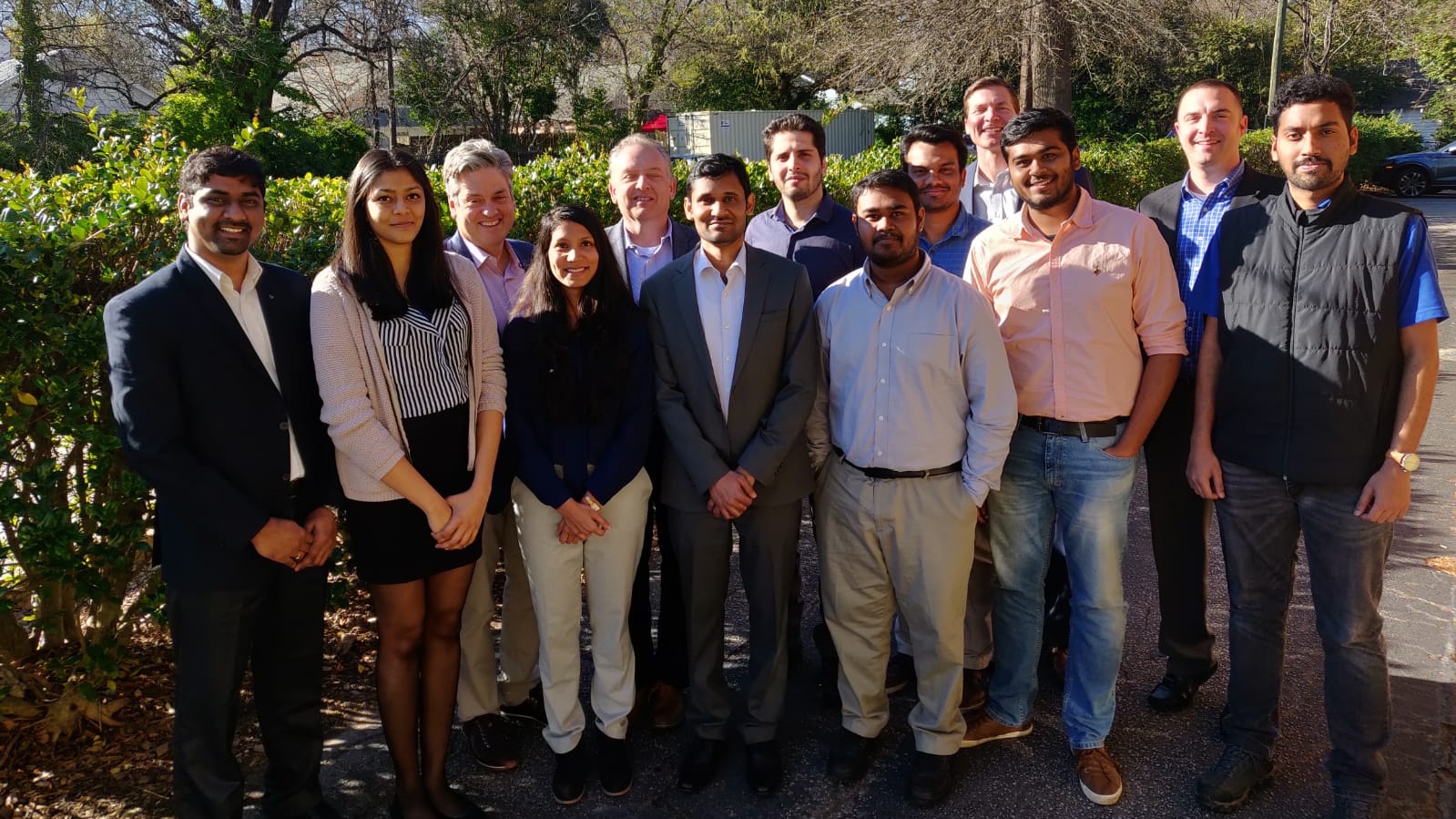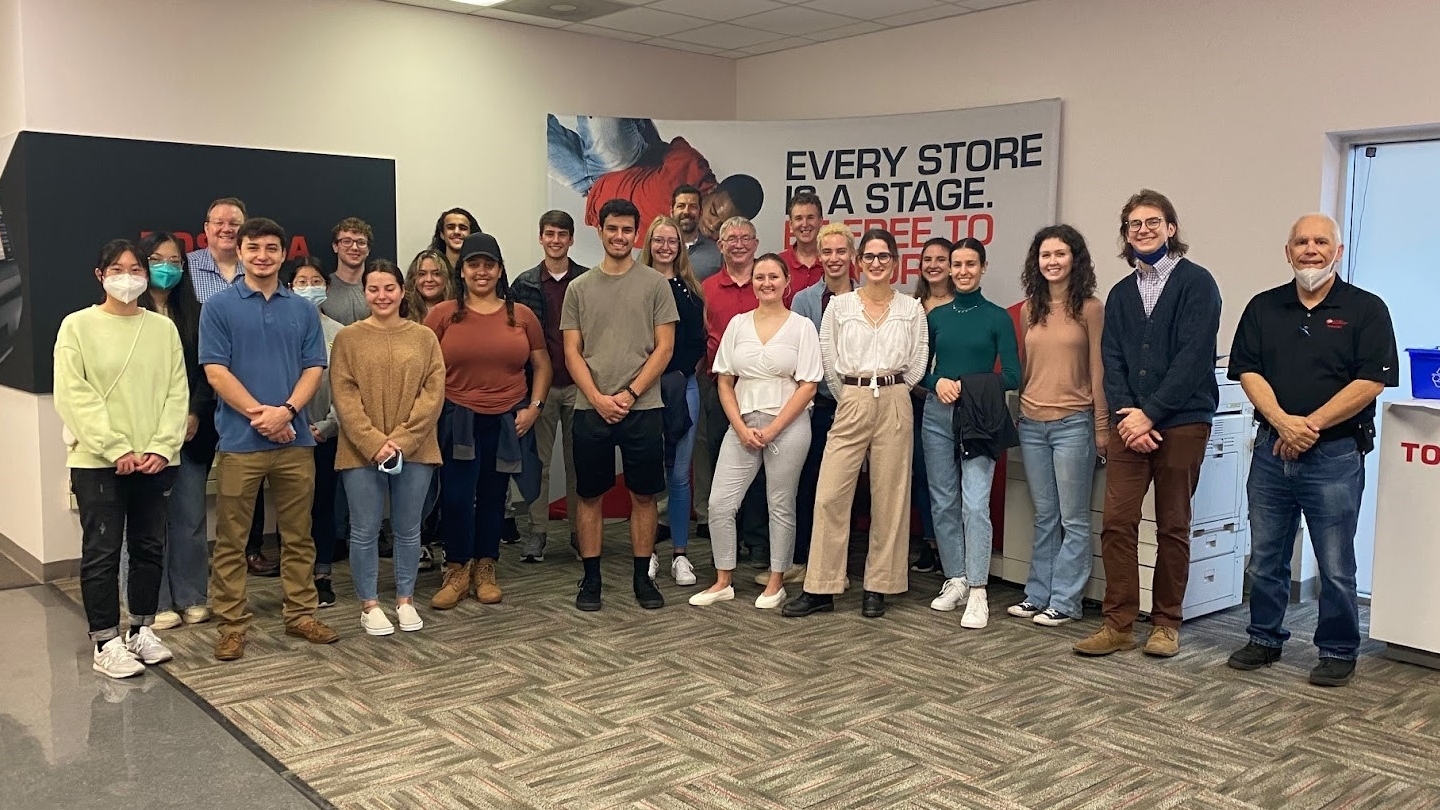Helping UPS Craft Its Vision and Strategy (Partner Spotlight)

Founded in 1907 as a messenger company in the United States, UPS has grown into a multibillion-dollar corporation by clearly focusing on enabling commerce around the globe. Today, UPS is a global company with one of the most recognized and admired brands worldwide. UPS has become one of the world’s largest package delivery companies and a leading provider of specialized transportation and logistics services. Every day, UPS manages the flow of goods, funds, and information in more than 220 countries and territories.
Last fall, Dr. Rob Handfield, Executive Director of the NC State Supply Chain Resource Cooperative (SCRC), invited UPS’s Brian Carrier and Adam Bibelhauser to the SCRC’s Semi-annual Partners Meeting. It was here that Carrier, VP of Supply Chain Innovation, and Bibelhauser, Head of Analytics Product Development, were introduced to the thought leadership and student achievement present within NC State’s supply chain community. Since then, they have become close partners with the SCRC, collaborating with its thought leaders and students to find innovative, useful solutions for UPS.
On March 27th and 28th, Carrier and Bibelhauser visited NC State’s campus to meet with the nine MBA and PhD student teams with which they are currently working on projects for UPS. During their visit, they took some time to discuss their experience so far as an SCRC partner.
Q: What led you to partnering with the SCRC?
Brian: Our division of UPS, Global Logistics, wanted to increase our efforts with advanced analytics and apply these efforts to some of our products and services. With this goal in mind, we researched different universities and technology companies and found Dr. Handfield. We reached out to him and he invited us to the SCRC meeting and gallery walk last semester. We were able to attend both events, and we decided the SCRC presented a good opportunity for us to engage with Dr. Handfield as well as to utilize the MBA and doctoral students to help us craft our vision and strategy.
Q: What’s the “big picture” goal you’re trying to accomplish by working with the NC State supply chain students and thought leaders?
Brian: Our goal is to use the market analysis provided to better understand the viability of new products and services. Afterwards, we will start to break those down into real projects to create new technologies, software deployment, or business cases around how we support these products and services.
Q: Can you describe one of projects you’re working on with our graduate students?
Adam: One of the MBA teams is working on a “missing data” project for us that is helping us address one of our biggest challenges: creating meaningful proposals without having been given all the information necessary to do so. To help address this challenge, we tasked the MBA team with developing a tool that can help us better analyze customer data. With this new tool and our existing capabilities, we can go to customers armed with a more accurate solution to meet their needs.
Q: What have you found particularly unique or beneficial about working with the SCRC?
Adam: Engaging with NC State has been a mutually beneficial process. This has been a partnership that creates experiential learning opportunities for students and provides us with fresh ideas. Over the past few months, we have been in “listening mode” and “research mode,” as we prepare to go into “development mode.” So far, the experience has been very positive. As a company that has been around for over 111 years, we recognize that we need to look externally to find places where ideas are challenged and innovation is forefront. Groups like the SCRC help push us forward. It is also helpful to have a credible outside organization, with someone like Dr. Handfield at the helm, to provide research that we can use to support our vision.
Brian: Dr. Handfield’s thought leadership, knowledge of the industry, and ability to connect us with resources has been incredibly valuable. In regards to the students, we are always looking for talented people. Working with these teams has been a great opportunity to identify potential UPS talent.
Q: From your perspective, what do you find particularly special about the SCRC student experience?
Adam: When we first started engaging with these students, I thought, “I wish I had had exposure to something like this when I was in college.” Most of the learning that occurred for me was conceptual. These students are getting exposure to how people behave, how to communicate in front of certain audiences, and what drives decisions. The students have learned to identify a financially sustainable and feasible idea among others. They realize that an idea has to generate revenue, reduce risk, and mitigate issues. Not only is this a good learning opportunity from a communications perspective, but also in terms of understanding what drives businesses to make decisions.
Brian: Another advantage of the SCRC student experience is that each team works with a senior advisor who has extensive business experience. These advisors helped guide the students as they complete their projects. Based on my experience, this is unique and sets the SCRC student experience apart.
Adam: We also have paired the teams up with senior leaders within UPS. This allows the students to learn more about the opportunities and challenges we face and learn from experienced leadership. Being able to work directly with the senior advisors and UPS’s senior leaders has provided the students with a meaningful experience.
Q: Besides working with students and thought leaders, how else have you benefited from your partnership with the SCRC?
Adam: We have seen significant value from engaging with other SCRC partner companies. The AI roundtable in January provided great opportunities to interact with different companies that are all in the supply chain and procurement space. For example, a company that presented in a workshop that we attended gave us some immediate feedback about their experience with the platform. The ability to network and leverage the experiences of other company participants has proven to be quite beneficial.
Q: To what types of other companies would you recommend partnering with the SCRC?
Adam: Any company that wants to foster diverse and creative ideas and solutions should take advantage of an opportunity like this. Also, it can be helpful to have credible sources from academia providing substance behind your stance when proposing new ideas within a company.
Brian: Also, companies that are looking for additional support in an area that is beyond their current realm of expertise would benefit from partnering with the SCRC. In our case, we were seeking support with data analytics and artificial intelligence. It is important to find industry thought leaders that are current on the activities in the space you are seeking to advance. We are very appreciative that the SCRC has been able to validate our strategy and guide us with these activities.
- Categories:


